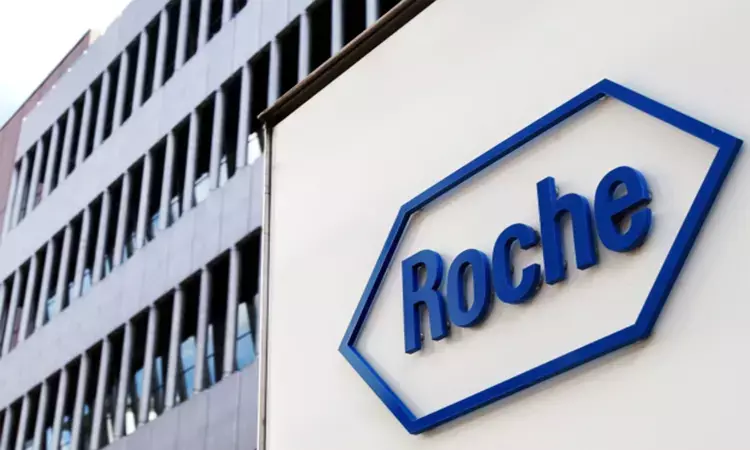- Home
- Medical news & Guidelines
- Anesthesiology
- Cardiology and CTVS
- Critical Care
- Dentistry
- Dermatology
- Diabetes and Endocrinology
- ENT
- Gastroenterology
- Medicine
- Nephrology
- Neurology
- Obstretics-Gynaecology
- Oncology
- Ophthalmology
- Orthopaedics
- Pediatrics-Neonatology
- Psychiatry
- Pulmonology
- Radiology
- Surgery
- Urology
- Laboratory Medicine
- Diet
- Nursing
- Paramedical
- Physiotherapy
- Health news
- Fact Check
- Bone Health Fact Check
- Brain Health Fact Check
- Cancer Related Fact Check
- Child Care Fact Check
- Dental and oral health fact check
- Diabetes and metabolic health fact check
- Diet and Nutrition Fact Check
- Eye and ENT Care Fact Check
- Fitness fact check
- Gut health fact check
- Heart health fact check
- Kidney health fact check
- Medical education fact check
- Men's health fact check
- Respiratory fact check
- Skin and hair care fact check
- Vaccine and Immunization fact check
- Women's health fact check
- AYUSH
- State News
- Andaman and Nicobar Islands
- Andhra Pradesh
- Arunachal Pradesh
- Assam
- Bihar
- Chandigarh
- Chattisgarh
- Dadra and Nagar Haveli
- Daman and Diu
- Delhi
- Goa
- Gujarat
- Haryana
- Himachal Pradesh
- Jammu & Kashmir
- Jharkhand
- Karnataka
- Kerala
- Ladakh
- Lakshadweep
- Madhya Pradesh
- Maharashtra
- Manipur
- Meghalaya
- Mizoram
- Nagaland
- Odisha
- Puducherry
- Punjab
- Rajasthan
- Sikkim
- Tamil Nadu
- Telangana
- Tripura
- Uttar Pradesh
- Uttrakhand
- West Bengal
- Medical Education
- Industry
Roche launches Elecsys HCV Duo immunoassay for hepatitis C virus

Elecsys HCV Duo is an immunoassay for the in vitro qualitative determination of hepatitis C virus (HCV) core antigen (HCV Ag) and antibodies to HCV (anti-HCV) in human serum and plasma.
Basel: Roche today announced the launch of the Elecsys HCV Duo immunoassay in countries that accept the CE Mark. Elecsys HCV Duo is the first available immunoassay that allows the simultaneous and independent determination of the hepatitis C virus (HCV) antigen and antibody status from a single human plasma or serum sample. This means that the test can be used to detect the early stage of infection, as well as when the patient is recovering from the virus, or showing signs of a chronic infection that may lead to other diseases, such as liver cancer.
By utilising the dual detection of HCV core antigen and antibodies to HCV, the Elecsys HCV Duo assay enables significantly earlier diagnosis of active hepatitis C virus infection compared to using antibody-only assays, as core antigen appears early in the course of infection and is a marker of ongoing viral replication. This can lead to earlier intervention for patients, reduction in the number of clinic visits needed to take additional test samples and can alleviate some of the testing burden on healthcare systems.
Elecsys HCV Duo is an immunoassay for the in vitro qualitative determination of hepatitis C virus (HCV) core antigen (HCV Ag) and antibodies to HCV (anti-HCV) in human serum and plasma. The test, in conjunction with other laboratory results and clinical information, may be used to aid in the diagnosis of and the screening for HCV infection. The test can also be used as a screening test to prevent transmission of HCV to recipients of blood, blood components, cells, tissue, and organs. The subresults (HCV Ag and anti‑HCV) are intended as an aid in the selection of the confirmatory testing algorithm for reactive samples.
"With improved hepatitis screening, healthcare systems have the opportunity to eliminate the disease through improved prevention, testing and treatment services,'' said Thomas Schinecker, CEO of Roche Diagnostics. "The addition of the Elecsys HCV Duo assay to our HCV testing portfolio can help in the fight to eliminate the hepatitis C virus. The launch of this innovative dual antigen and antibody diagnostic test underlines our commitment to support clinicians and their patients in reducing the impact of infectious diseases, where it's needed most."
In 2019, 58 million people were living with chronic HCV infection, but only 21% were aware of it. 290,000 people died of hepatitis C-related causes, like cirrhosis and liver cancer, more than those due to HIV or malaria. While there is no vaccine available for HCV, there is effective treatment with antivirals that can lead to a cure in 98% of patients. However, to find affected populations there is a greater emphasis on increased access and utilisation of testing to reduce the impact of the virus, as well as to provide better disease management for patients testing positive for HCV.
Through early detection and intervention it is possible to get patients appropriate care sooner, stop the disease progression, as well as transmission and, potentially, reduce unnecessary healthcare costs. Addressing these factors is crucial in efforts to eradicate the disease. Currently, there are major gaps in access to hepatitis C testing and treatment in all populations, especially among economically disadvantaged populations, as well as those living in rural regions.
Ruchika Sharma joined Medical Dialogue as an Correspondent for the Business Section in 2019. She covers all the updates in the Pharmaceutical field, Policy, Insurance, Business Healthcare, Medical News, Health News, Pharma News, Healthcare and Investment. She has completed her B.Com from Delhi University and then pursued postgraduation in M.Com. She can be contacted at editorial@medicaldialogues.in Contact no. 011-43720751


